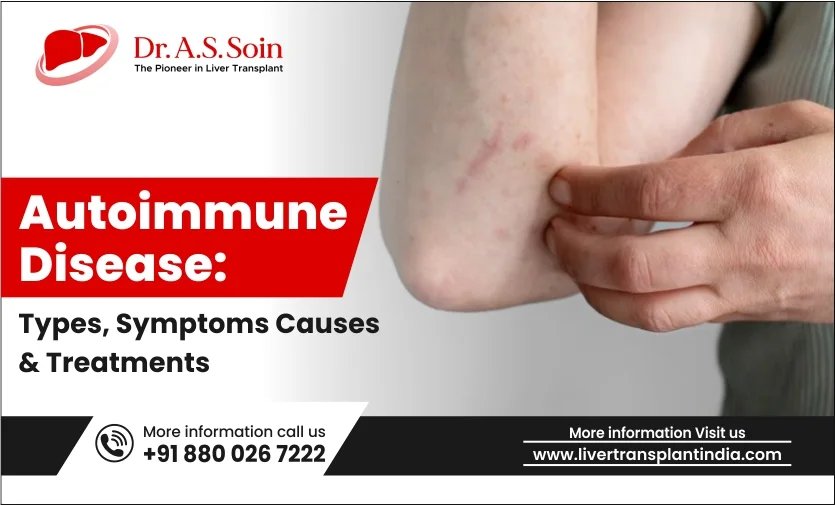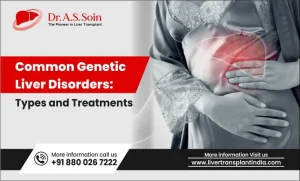Autoimmune diseases arise from the immune system’s misidentification and subsequent attack on healthy body cells. This phenomenon results in the release of autoantibodies, which target and destroy otherwise functional cells. Seeking optimal treatment for autoimmune disorders necessitates expert medical intervention, such as that provided by Dr. AS Soin, an esteemed surgeon renowned for his extensive experience and commitment to patient care. This article aims to elucidate the various classifications of autoimmune diseases, their prevalent symptoms, underlying causes, and efficacious treatment modalities.
Table of Contents
ToggleEtiological Factors of Autoimmune Diseases
Multiple factors contribute to the onset of autoimmune diseases, including gender, ethnicity, familial predisposition, environmental influences, and nutritional status.
Gender: Females aged 14 to 44 exhibit a heightened susceptibility to autoimmune diseases compared to males, potentially attributing gender as a predisposing factor.
Ethnicity: Certain autoimmune disorders manifest more prominently within specific ethnic groups, with individuals of European descent exhibiting a higher prevalence rate.
Family History: Genetic inheritance plays a significant role in autoimmune disease predisposition, as individuals with familial antecedents of such conditions are at an increased risk.
Environmental Factors: External elements such as sunlight exposure, chemical toxins (e.g., solvents, smoke), mercury, and bacterial infections may precipitate autoimmune responses in susceptible individuals.
Nutritional Status: Dietary habits significantly impact autoimmune disease development, as improper nutrition can exacerbate immune dysregulation and inflammatory responses.
Symptoms of Autoimmune Disorders
Recognizing the symptomatic manifestations of autoimmune disorders facilitates timely diagnosis and intervention, thereby optimizing patient outcomes. Common symptoms include:
- Fatigue: Sudden onset of fatigue and lethargy may indicate underlying autoimmune pathology, necessitating prompt medical evaluation.
- CognitiveImpairment: Autoimmune diseases can impair concentration and cognitive function, posing challenges in daily activities.
- Alopecia: Excessive hair loss, beyond normal physiological shedding, may signify autoimmune involvement.
- CutaneousManifestations: Autoimmune disorders often present with dermatological manifestations, such as rashes and skin lesions.
- MusculoskeletalSymptoms: Autoimmune diseases frequently manifest as musculoskeletal pain and discomfort, affecting mobility and quality of life.
- Paresthesia: Tingling sensations in the extremities commonly accompany autoimmune conditions, reflecting neurological involvement.
Classification and Treatment of Autoimmune Diseases
Autoimmune diseases encompass a diverse spectrum of disorders, with over 100 identified variants. The following represent prevalent types and their respective therapeutic approaches:
- Type 1 Diabetes: Characterized by immune-mediated destruction of pancreatic β-cells, necessitating insulin therapy, blood glucose monitoring, and lifestyle modifications.
- Rheumatoid Arthritis (RA): Autoimmune-mediated joint inflammation necessitates pharmacological interventions (e.g., steroids, biologics), physical therapy, and surgical interventions (e.g., tendon repair, joint replacement).
- Inflammatory Bowel Disease: Chronic intestinal inflammation warrants immune-modulating medications, biologics, and supportive therapies to mitigate symptoms and prevent complications.
- Addison’s Disease: Adrenal insufficiency requires hormone replacement therapy to restore physiological homeostasis and alleviate symptoms.
- Graves’ Disease: Hyperthyroidism management entails anti-thyroid medications, radioactive iodine therapy, or surgical intervention to normalize thyroid function and mitigate associated symptoms.
Conclusion
Early recognition of autoimmune disease symptoms and prompt medical intervention are imperative to mitigate disease progression and improve patient outcomes. Dr. AS Soin’s expertise in autoimmune disorder management offers patients comprehensive diagnostic evaluations and tailored treatment strategies, ensuring optimal care for individuals afflicted with diverse autoimmune pathologies. Schedule a consultation with Dr. Soin to receive personalized care and effective management of autoimmune diseases.








